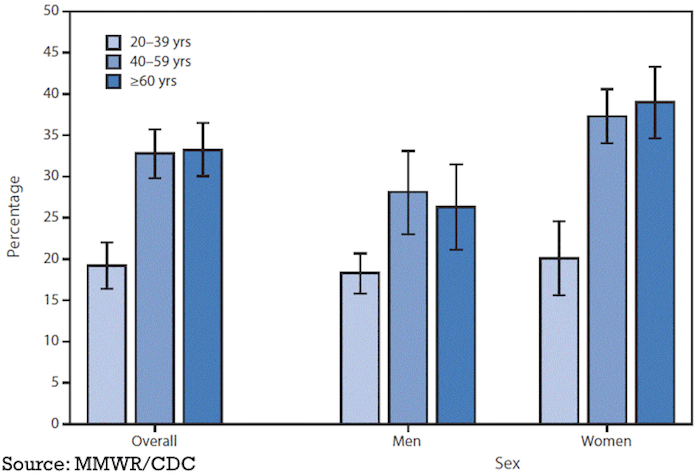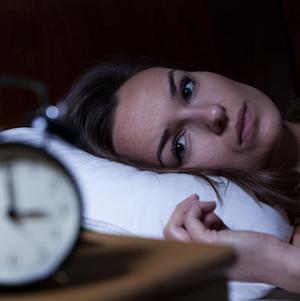
Tossing and turning in bed all night long, it can feel as if you're the only person in the world unable to sleep. It may be a small comfort to learn, however, that you aren't the only one. Millions of other Americans also struggle to sleep.
In the latest Morbidity and Mortality Weekly Report, the CDC reports data on the prevalence of sleep trouble by age group and sex. (See chart below.)

As shown, about 20% of young adults (aged 20-39) have trouble sleeping. The problem appears to get worse with age. Roughly one-third of people aged 40 and over report difficulty sleeping. In general, women have more trouble than men.
The article does not attempt to explain why so many people have trouble sleeping, but there are many hypotheses. Perhaps the most popular explanation offered today is the proliferation of mobile devices. Instead of leaving them on the table, many of us bring them into the bedroom. The light from these devices may interfere with our circadian rhythm.
Other behavioral explanations, according to the National Sleep Foundation, include taking naps, working at home in the evenings, and consuming foods that contain alcohol or caffeine. But there may be biological factors, as well. One study, for instance, found that insomniacs' brains are wired differently compared to people who don't have trouble sleeping. Depression or anxiety can also result in sleep disturbances.
Any person who has trouble sleeping first needs to figure out why. This may require some self-experimentation. If the reason is related to lifestyle, the good news is that it may be fixable.
Source: "QuickStats: Percentage of Adults Aged ≥20 Years Who Ever Told A Doctor That They Had Trouble Sleeping, by Age Group and Sex — National Health and Nutrition Examination Survey, 2013–2014." MMWR 65 (46): 1323. Published: 25-Nov-2016. DOI: http://dx.doi.org/10.15585/mmwr.mm6546a11.




